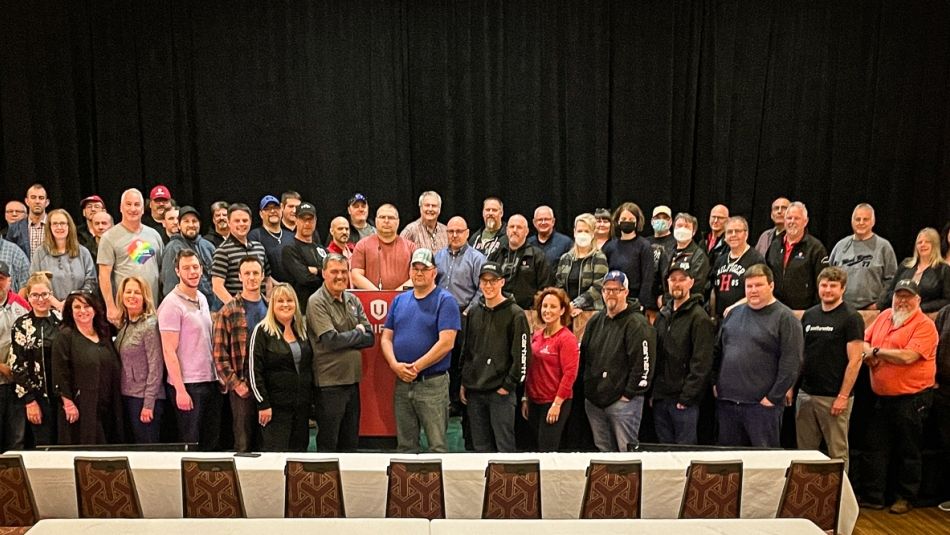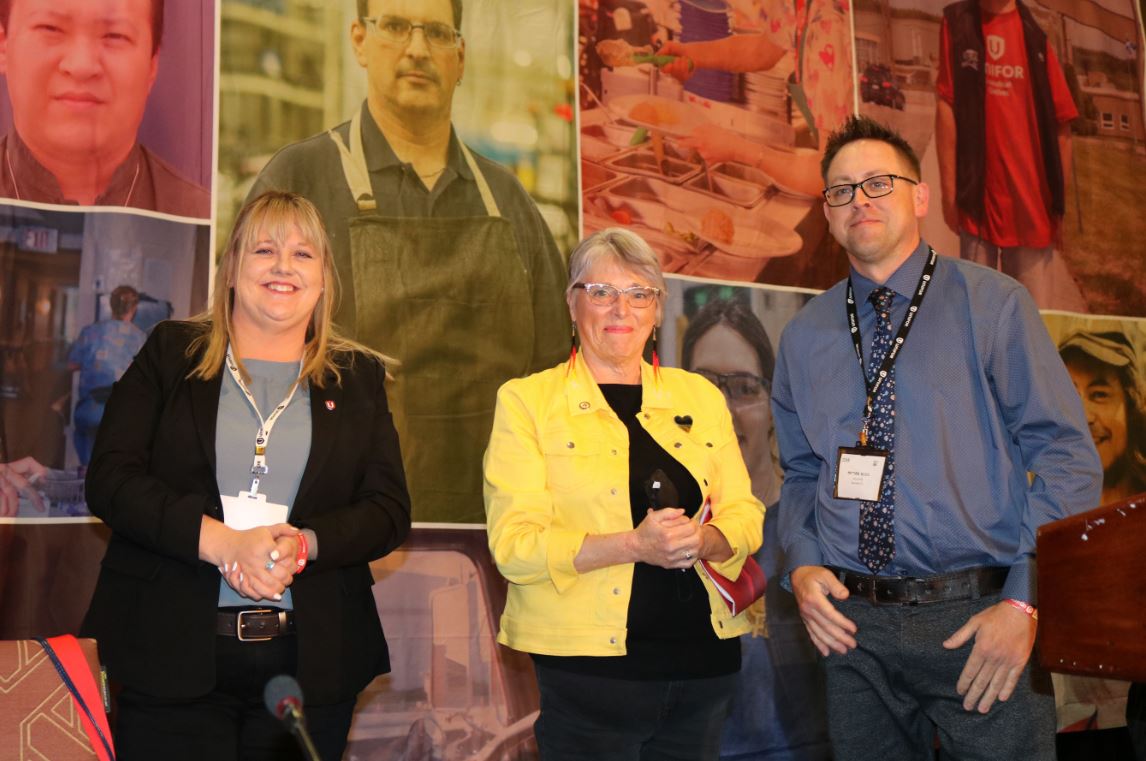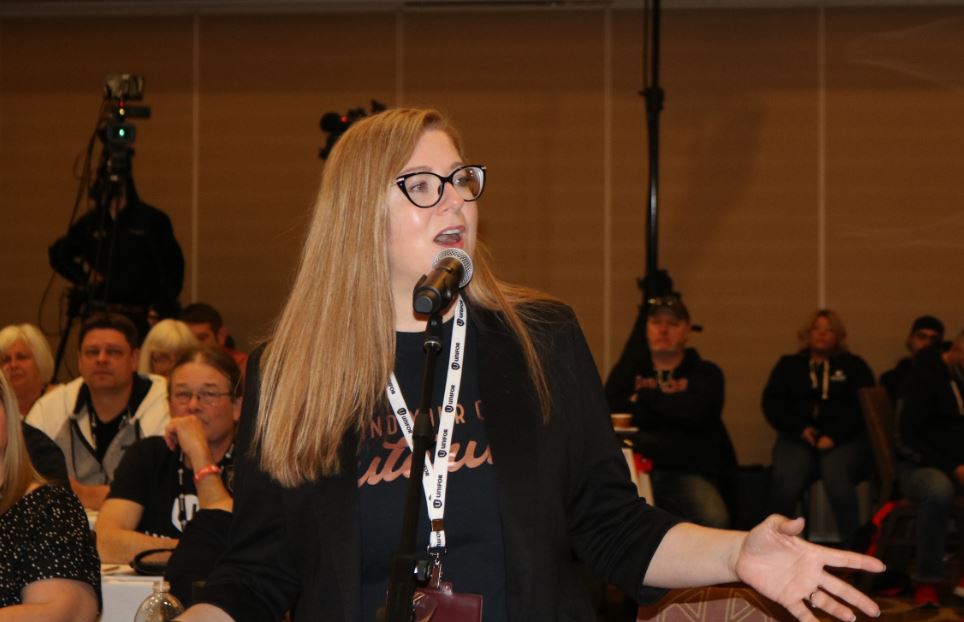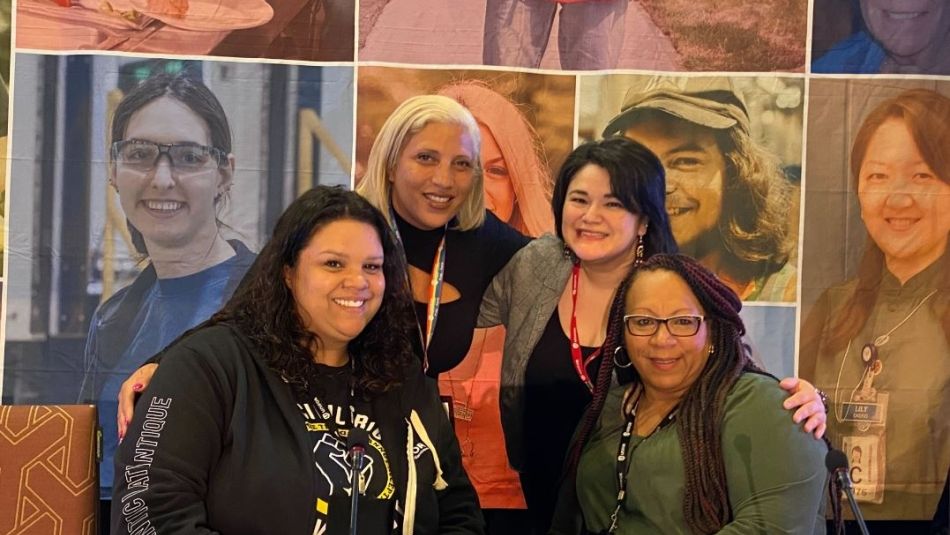
Share
Atlantic Regional Council members are regrouping to build a bigger, better and stronger union.
“This council united us in a way we have sorely missed,” said Linda MacNeil, Atlantic Regional Director. “The pandemic years were isolating for so many of us and that feeling was delightfully absent for the two days we sat in that room together. It makes us all the more thankful for the solidarity we build through the daily work of the union.”
Members discussed challenges to unionized and non-unionized workers, which became clear following the years of corporations taking substantial government pandemic supports only to stuff the pockets of shareholders and upper executives.
Employers have withheld wage increases, crying poor while reporting record profits, without humility or embarrassment. Workers are rightfully enraged. Delegates shared that the need to work through the union will be even more important as we fight against far-right rhetoric, misinformation and campaigns to weaken working class protections.
“We have to know that ‘normal’ is deeply flawed, especially for those of us who experience the deepest inequities,” said guest speaker Mary Shortall, President of the Newfoundland and Labrador Federation of Labour. “We will beat back the austerity attack. They can work with us at the table, or we will take it to the streets.”

Shortall outlined the process Newfoundland and Labrador Premier Andrew Furey followed to establish the Premier’s Economic Recovery Team (PERT), of which she was briefly a member. She resigned from her position after the imbalance of the team became clear.
“We had been asking very publicly to be at any table that was making decisions about how we build back a strong economy – and we knew that government seemed to be heading down a path we would not support,” said Shortall.
National Secretary-Treasurer Lana Payne called on members to fight those in power, and achieve what others say is impossible which, she said, is what Unifor does best.
“Imagine what your communities would be like if you weren’t doing what you’re doing. Because I know what it would be like. There would be less democracy. There would be fewer people defending the rights of workers. There would be less equality. Workplaces would be less safe. The very social fabric of our country would be weakened,” said Payne. “Never doubt the difference you make every single day.”
Payne outlined the financial challenges Unifor is facing due to years of deficits, and decreased revenues when members suffered job loss and layoff during the pandemic but assured members that the union is in a much stronger position than in March 2020. She urged members to fight and persevere.
“It took a global pandemic to get paid sick days at the federal level, but we never relented,” said Payne. “It took a historic round of auto bargaining to create Racial Justice Advocates, patterned after our globally recognized and adopted Women’s Advocate Program. Friends, when we take advantage of the places and spaces where we have influence and power, we can win for workers.”

The Regional Director’s Recommendation on Reproductive Rights lit a fire in the room as delegate after delegate lined up at the speaker microphones pledging to hit the streets and do whatever is necessary to improve access to reproductive care and get the federal government to enforce the Canada Health Act.
“I had an abortion. And it was my choice, no one else’s.”
“I suffered for 15 years with severe endometriosis and my doctor wanted my husband’s permission to get a hysterectomy.”
“I was raped. And I had to travel to access an abortion.”
“People jeered at me outside the clinic.”
“I had an ectopic pregnancy and could have died without an abortion.”
“I was an escort at a clinic, walking women past protestors. They closed that clinic and all I can think about now are what those women will do now.”
“Hands off my friggin’ uterus!”
Story after story repeated the need for improved access across the country. The Council unanimously passed the resolution and committed to protecting and defending the autonomy and rights of every person who can become pregnant.
Other resolutions were passed on: achieving federal and provincial anti-scab legislation; combating hate, abuse and harassment targeting media workers; improving long-term care standards and protecting and supporting the workers; ending contract-flipping; fighting corporate concentration in the fishery; and stopping the privatization of VIA Rail.
Director of Organizing Kellie Scanlan, Organizer Patrick Murray, Local 2002 President Tammy Moore, and FFAW-Unifor President Keith Sullivan discussed the challenges the pandemic had on organizing and how creativity and strength led to innovative new organizing tools and methods.
“When electronic cards were introduced, we signed as many cards in four hours as it used to take us a year to sign. It blew us away,” said Scanlan. “The meetings at coffee shops and us showing support at the workplace will always be part of the work we do, but technology and our ability to reach members will be forever changed.”
Through changes, turmoil, uncertainty and crisis, Unifor members in the Atlantic continue to achieve, continue to defend and support their fellow workers and continue to grow the union.



